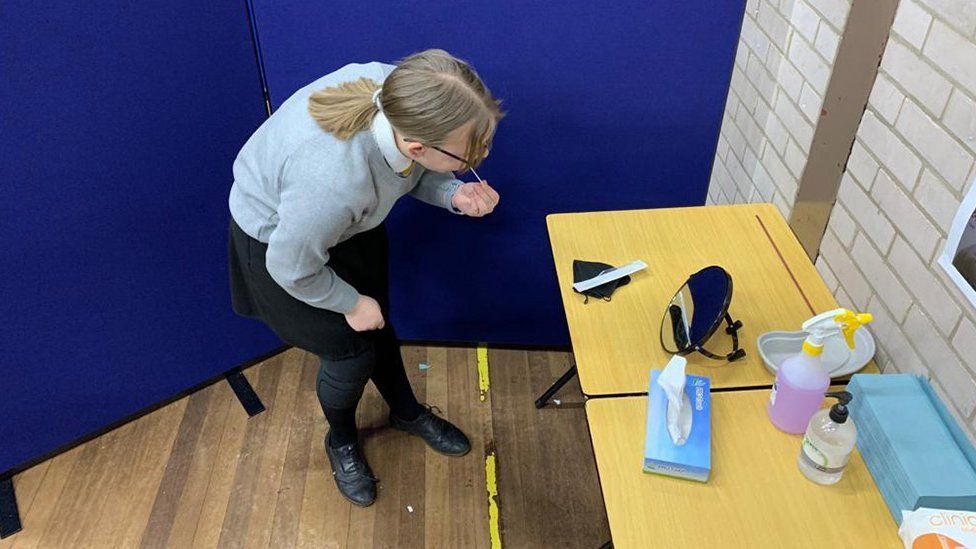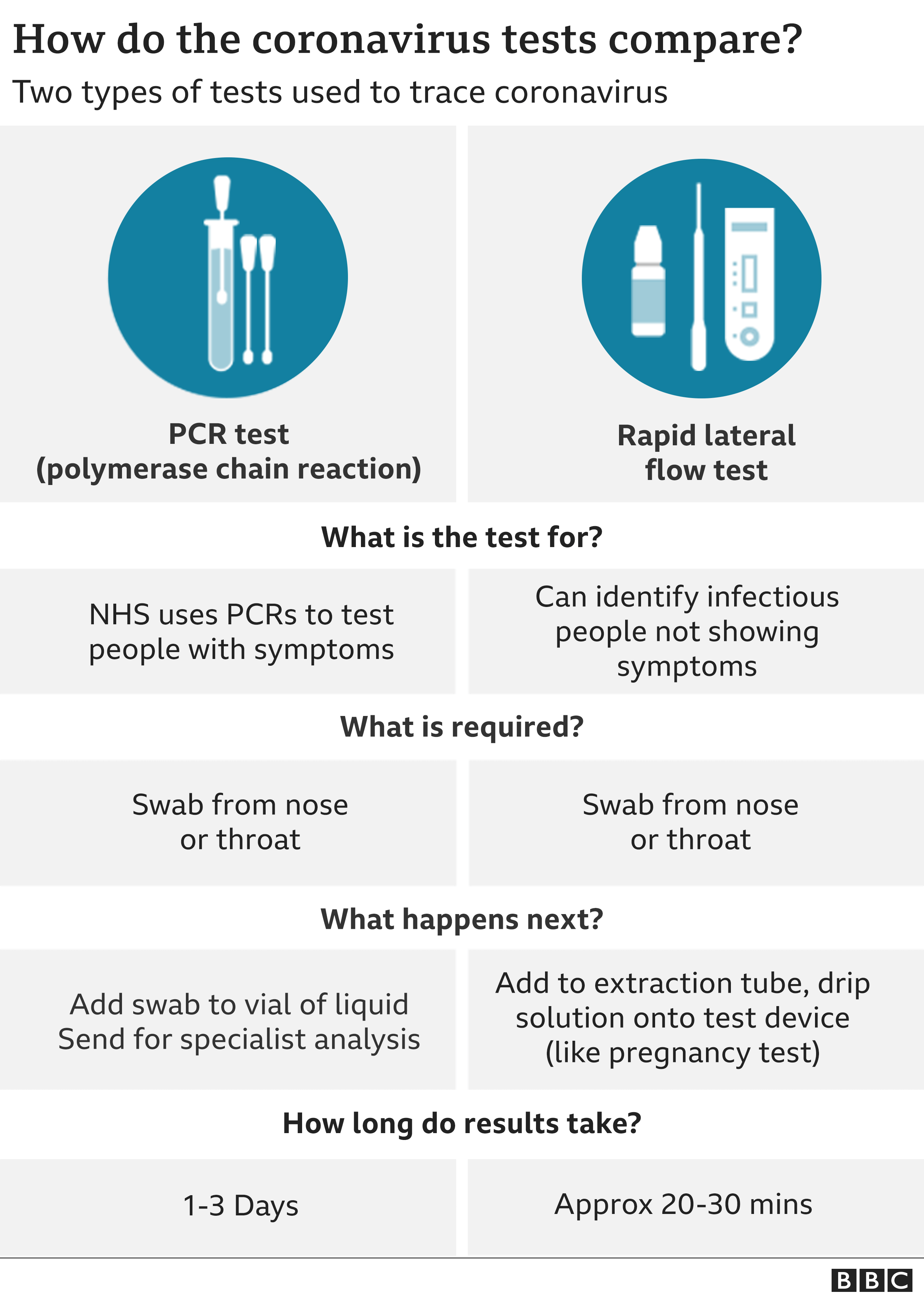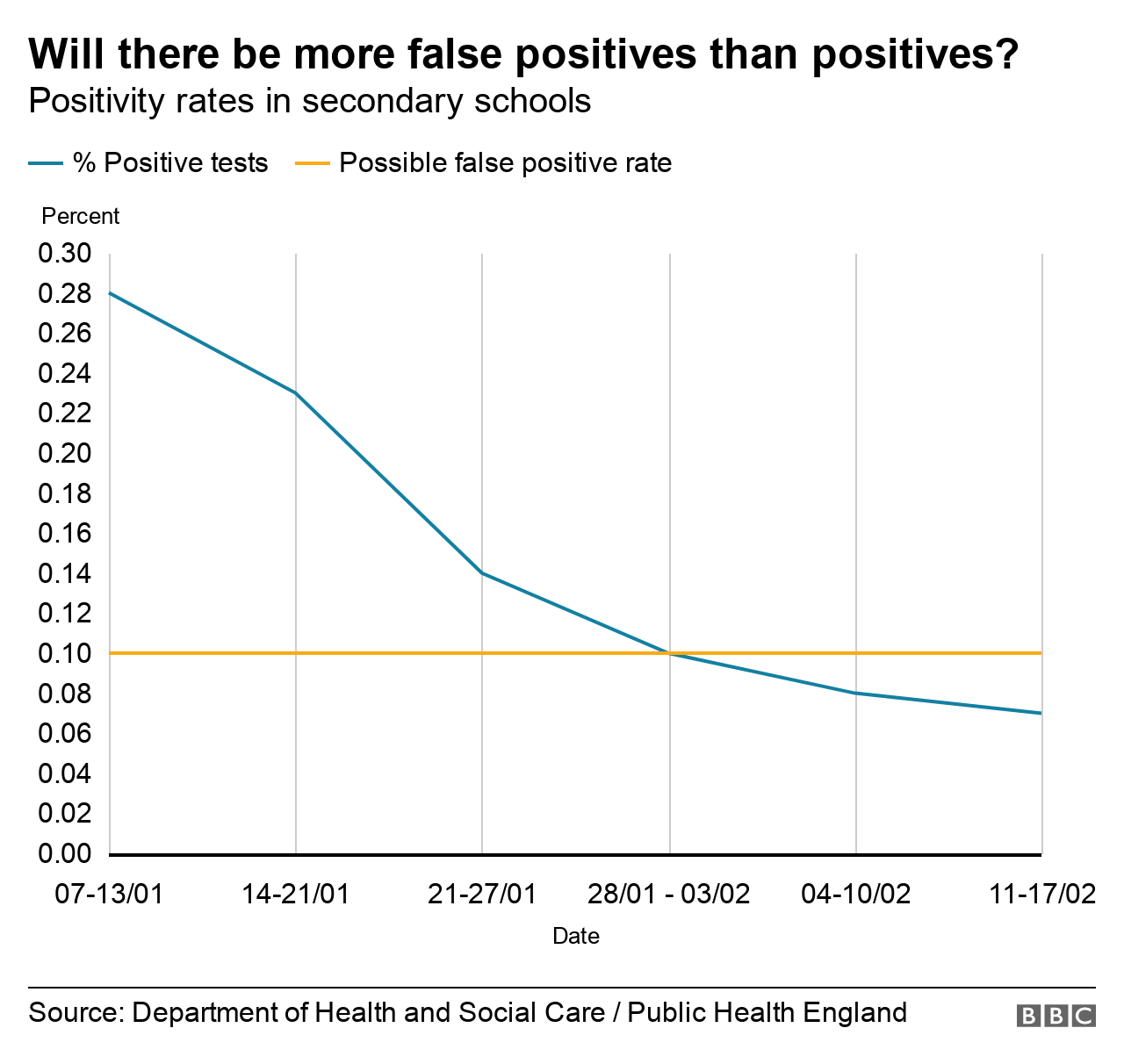
The government is sticking to the rule that a positive rapid Covid test done in secondary schools in England cannot be overruled by the gold-standard tests processed by labs.
Concerns have been raised by testing experts that significant numbers could be incorrectly told they are infected.
They have called for all positives from the rapid testing done in schools to be confirmed by the standard PCR test.
This is what will happen when testing is done at home after next week.
It will mean a pupil who tests positive at home with a rapid on-the-spot test - known as a lateral flow test - will have to isolate on the basis of that test, but will be told to get a PCR test which is processed in a lab.
If that PCR test is negative they will be released from isolation.
But for those done in schools - pupils are being offered three tests in the next two weeks - it will be assumed the lateral flow test is right. A PCR test cannot overrule the lateral flow test.


The Royal Statistical Society is one of the bodies which wants to see all positive tests in schools confirmed with a PCR test.
Prof Sheila Bird, a member of the society's Covid-19 Task Force, has said false positives were "very likely in the present circumstances".
However, Schools Minister Vicky Ford insisted the approach was right.
She told BBC Radio Four's Today Programme that the chances of a false positive - where a pupil is incorrectly diagnosed as having the virus - was "very low".
She said pupils who test positive via the lateral flow tests done in schools will need to isolate, along with their families and close contacts and "should not take a PCR".
"The really important thing is to make sure we can keep schools open and minimise the risk of Covid in classrooms," she said.
But testing experts have questioned the policy, arguing it is contradictory to insist on rapid tests done at home to be confirmed by a PCR test but not those done in schools.
Some have said with infection rates so low, it could mean it could do more harm than good - as the number of false positives could outnumber the true positives.
It is unclear what the true false positive rate will be in school settings. Research by Public Health England has suggested it could be as high as three for every 1,000 tests done, but other studies have suggested it is nearer one.
The testing done in schools in recent weeks for the children of key workers and teachers show the number of tests returning positive results is in line with the lower estimate, suggesting a significant number of tests could be false positives.


With around four million secondary school pupils, even if just half of them take up the offer of rapid testing - which is not mandatory - it could lead to tens of thousands of pupils and families having to isolate unnecessarily.
University of Bath mathematical biologist Dr Kit Yates said warned the government's stance could undermine confidence in the testing policy.
"Not confirming less accurate lateral flow positives with more accurate PCR tests will put people off testing their kids. It's as simple as that."
Primary school children are not being asked to take rapid tests, but families can request tests for use at home.
https://news.google.com/__i/rss/rd/articles/CBMiKmh0dHBzOi8vd3d3LmJiYy5jby51ay9uZXdzL2hlYWx0aC01NjMyMTUzN9IBLmh0dHBzOi8vd3d3LmJiYy5jby51ay9uZXdzL2FtcC9oZWFsdGgtNTYzMjE1Mzc?oc=5
2021-03-08 11:30:11Z
52781421949505
Tidak ada komentar:
Posting Komentar